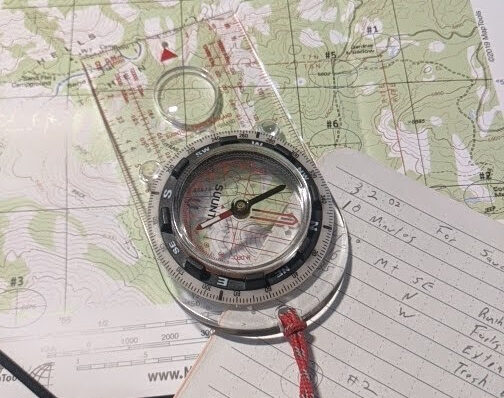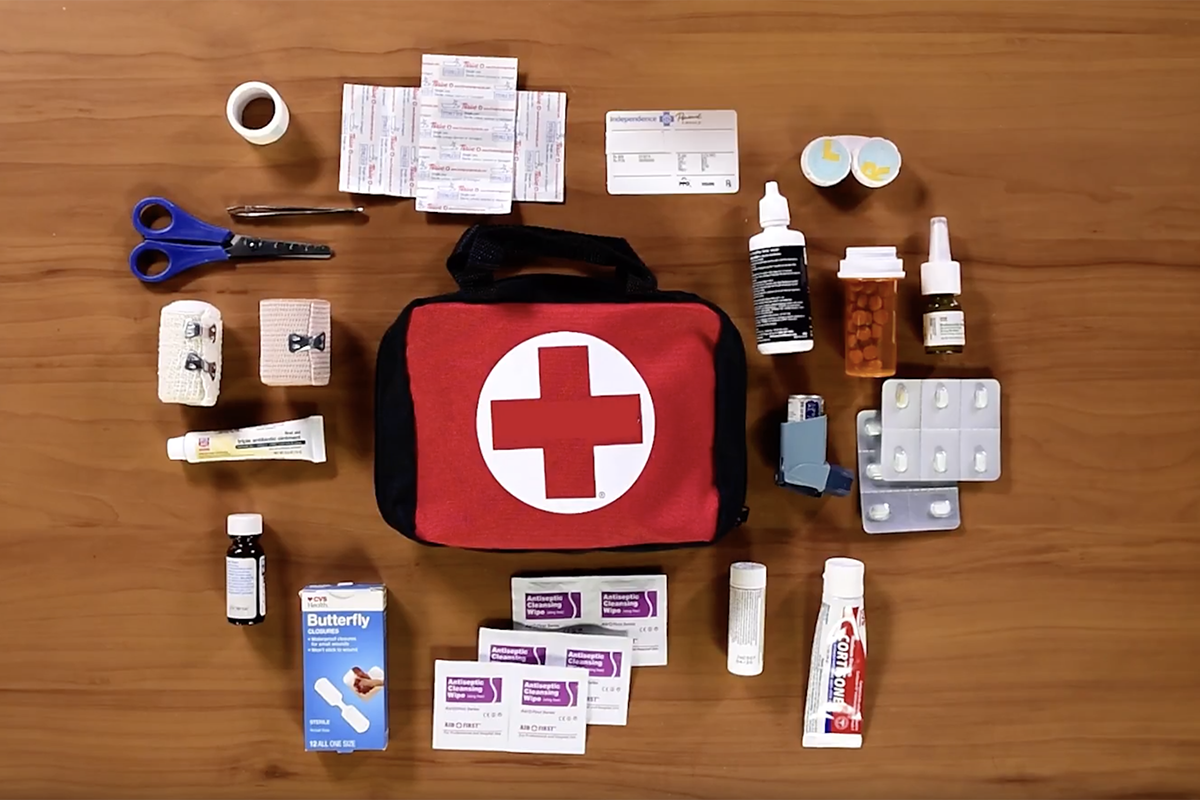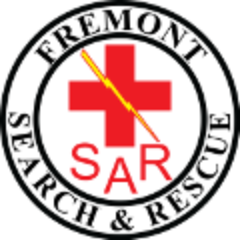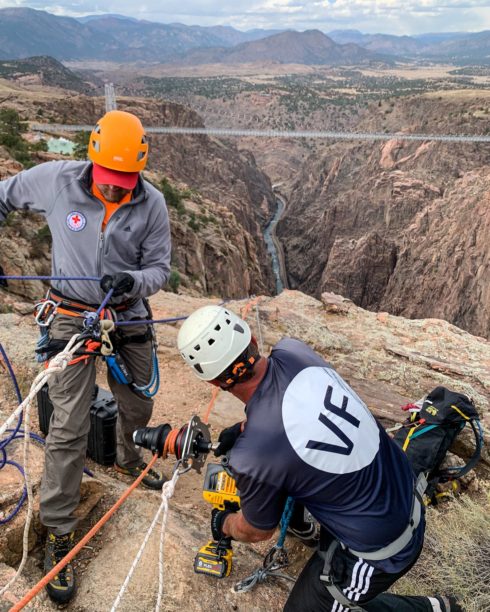10 Essentials For The Wilderness
School is almost out and the draw of the mountains is pulling hard. But before you take off on your hike, mtn bike ride or whatever adventure you seek to have take a minute and make sure you have the 10 Essentials for any trip. Always remember though everyone’s needs are unique and this is just a good place to start.
- Navigation
- Headlamp/Flashlight
- Sun Protection
- First Aid
- Knife
- Fire Source
- Shelter
- Extra food
- Extra Water
- Extra Clothes
Whoa! I am just going for an hour walk on a well-traveled trail, why do I need to carry all of all that stuff? Besides, I’ve been outdoors my whole life, I don’t need any of those things. Even though you may be an experienced hiker or outdoor enthusiast, the reality is that many of the folks who call Search and Rescue have some experience in the wilderness. Little mistakes add up, and venturing out unprepared and overconfident can lead to troubles – especially when the unexpected happens. Although the list might look pretty long, the items can actually be quite small and light and organized to fit in a small pack.
Better to have and not need, than need and not have!
Navigation

Map: This need not be complex, but make sure when you head out take a map of the area, even without extra tools this can make it easier to orient yourself if you get lost.
Compass: A compass is a great tool, the more you learn about it the more amazing it is. This lightweight basic tool along with a map can help you know exactly where you are at, and more importantly how to get back to where you want to be. Just knowing which way north is can be the difference between a life threatening night in the cold and being at home safe. Also they don’t run out of batteries so they are a bomb proof solution to navigation.
GPS Device: Easier to pickup and use than a compass a GPS device uses satellites to show you exactly where you are. Great tools and modern devices will run a long time. Just be sure you know how to use it and have a map loaded for the area you will be traveling. Also check the batteries and consider taking extra because as great as they are, GPS devices are dead weight when the batteries are depleted.
Personal Locator Beacon: This is another great modern tool that can help save lives. A PLB (Personal Locator Beacon) can either be a subscription based device or a one time use device that when you hit the emergency button help will be on it’s way as long as it can get a signal out via satellite. Again, being an electronic device check the batteries!
Light!
Headlamps: Many cost effective LED headlamps are great tools, easy to wear while hiking at night, and serve many purposes.
Flashlight: Just what it is, LED flashlights can be pretty small and lightweight but offer a great option for seeing at night, signaling if needed and just being handy.

Sun Protection

Nothing beats taking a great hike on a beautiful sunny day. However without protection from the sun the hours or days after can be miserable with a bad case of sunburn. Winter or summer the sun can really do a number on your body but thankfully some basic precautions can be taken to mitigage it’s effect.
Sunglasses: A pair of sunglasses can help protect your eyes, especially in the snow, from stress and in extreme cases snow blindness. Get a pair with a high UV rating, and consider getting some sunglasses retainers to make it a bit harder to lose.
Suncreen: Skin is easily effected but prolonged exposure to high UV levels. Sunburns at best are uncomfortable and at worst can be debilitating. Sunscreen is available most anywhere and there is no reason not to have some with you on your next trip.
Clothing: Clothing can be a great way to get sun protect, consider wide brim hats, light weight long sleeve shirts can help let moister escape but keep the sun out and gloves can protect your hands.
A Note about Clothing – The use of synthetic materials in place of cotton is extremely valuable outdoors. Synthetic garments dry more quickly, weigh less when wet, and are better at aiding in temperature regulation.
First Aid
Nobody plans on getting hurt when exploring the outdoors but it’s always good to know it can happen and be prepared for it. A small first aid kit and help with all sorts of bumps, bruises, cuts and scrapes. Having important medication for known health issues and a few other types for muscle aches or stomach issues is always a good idea. Make sure you are familiar with your kit and how to use it. Also consider taking some basic first aid and CPR classes to be more prepared when help is farther away than usual.

Knife

Knives are a great all purpose tool that should always be with you. They are great for food prop, helping to fix broken equipment, first aid, wood preparation for a fire and any other number of tasks.
Small pocket knifes are great, depending on your trip you may consider other types.
Shelter
One of the more dangerous things if caught out longer then expected is exposure to the elements. This is true in both the winter or summer. Summer time heat stroke can happen and it’s important to know how to find shade and cool off. Winter time at a minimum bring a emergency blanket which can help trap your body heat and protect you from hypothermia. Even some large trash bags can work in a pinch. On longer trips make sure and bring tarps or a tent that you know how to make an appropriate shelter from.

Extra Food

It’s always good to bring some extra snack and calories in case you end up staying out longer then expect or needing an extra boost of energy. Weather can cause trips to go longer then expected or trail conditions can cause you to take a longer route then you may have anticipated. There are lots of great options out there for easy to carry snacks that will help you out on the trail.
Extra Water
Make sure and take water with you when going outdoors. If you know you are going to be heading out a bit farther it’s not a bad idea to bring extra water with you. Always be careful to filter or water treatment any water you find out on the trail. Water can look clean and clear but still have things that can make you sick. There are great options for some lightweight water filters or purifiers though to make this water safe to drink just in cause you need to refill where there isn’t potable water ready.

Extra Clothing

As anyone who has spent time in Colorado knows weather can change rapidly, what starts out as a warm day can quickly turn into a wet hike. Look at the weather and bring some extra clothes like a rain jacket or insulating layer just in case.


